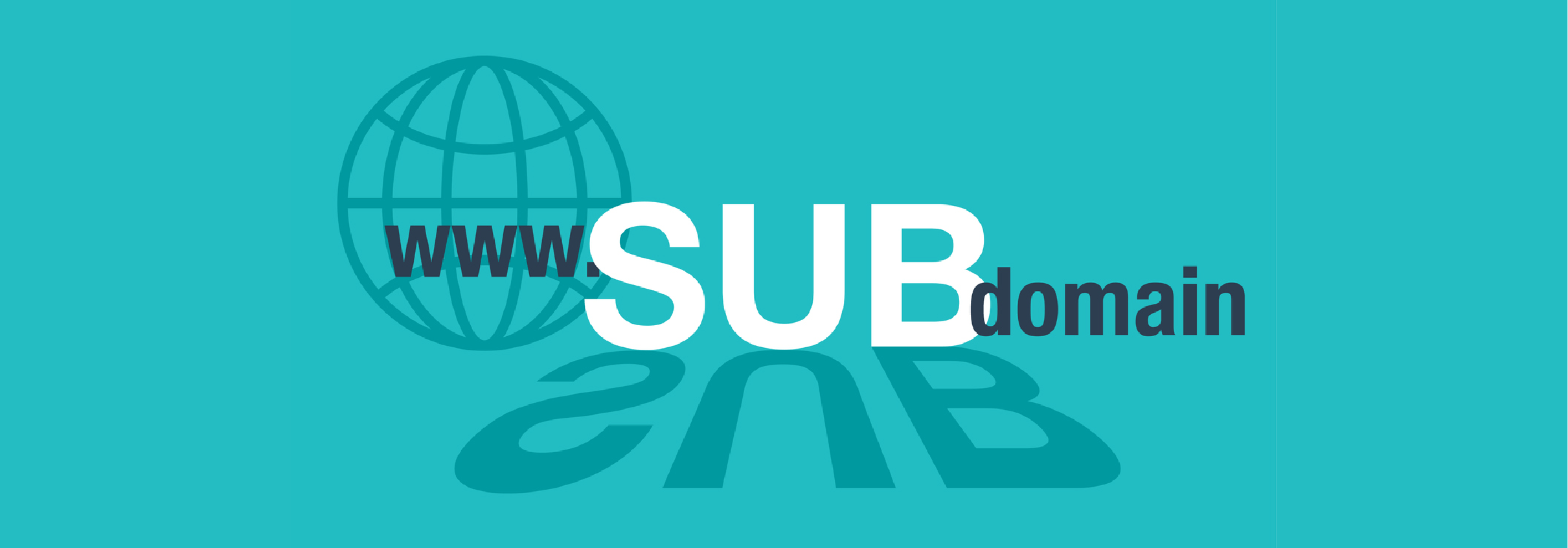Subdomain vs. Domain: What’s Best for SEO.
Subdomain vs. Domain: What’s Best for SEO?
Hey there! This guide is all about subdomains and domains in the world of making websites easy to find on the internet. We're diving into the differences between these website addresses and how they affect your site's visibility.
When you're building a website, choosing between a subdomain (like shop.example.com) and a domain (like www.example.com) is a big deal. It's like picking the base for your website, and this choice can change how search engines and people find and use your site.

This guide is your map to understand these website addresses better. We'll explain how they work, how they impact your site's popularity on the internet, and help you decide which one might suit your website goals.
Join us on this journey to uncover the secrets of these website address styles. By the end, you'll have a clearer idea of which one might be right for your website's success. Let's get started!
Subdomain vs. Domain: Understanding the Basics
A domain is like the main address for your website on the internet, such as www.example.com. It's where everything begins and identifies your website uniquely.
On the other hand, a subdomain is a bit like a neighborhood within that main address. It's a smaller section tied to the main address, such as shop.example.com. It helps organize different parts of the website, like a separate place for an online shop or a blog.
Think of the main domain as your website's main street address, showing where it is. The subdomain is like a smaller area within that address, focusing on specific parts, making it easier for people to find things.
Understanding these differences is essential when creating a website. The domain is like the main name of your website, while subdomains are smaller parts within it. Both are crucial for how your website is set up and how people explore and find things on it.
SEO Impact of Subdomains and Domains
Both subdomains and domains significantly influence SEO. Search engines consider factors like a domain's age and keyword inclusion to determine site credibility and relevance. Similarly, ranking a subdomain follows similar principles, considering its age, authority, and relevant keywords.
However, in practice, subdomains can profoundly impact SEO. Search engines treat subdomains as separate entities, meaning the SEO metrics for the main domain and its subdomains are distinct. High-traffic subdomains with numerous backlinks might not necessarily boost the main domain's SEO.
Subdomains: A Separate Entity?
While technically, a subdomain is part of your site's structure and not a distinct domain, search engines view it as a separate entity. This approach affects how SEO metrics and rankings apply to subdomains compared to the main domain.
Choosing Between Subdomains and Domains
Determining whether to use subdomains or stick to a primary domain depends on your website's needs. Subdomains can be advantageous for:
- Niche Targeting: Ideal for large websites or businesses catering to diverse audiences. Subdomains enable distinct SEO strategies, keywords, and content marketing approaches.
- Localization: International companies often use subdomains to target specific geographic areas or different languages, improving local SEO visibility.
- Organization: Subdomains help navigate complex or extensive websites, enhancing user experience and potentially reducing bounce rates.
On the other hand, domains are preferable for:
- Brand Consistency: Maintaining a unified brand experience by keeping all content under a single domain, suitable for businesses targeting a specific audience.
- Domain Authority: Focusing all backlinks on a single URL enhances domain authority, potentially yielding quicker SEO results compared to subdomains.
- Simpler SEO: Managing and optimizing a single site requires less effort and resources compared to splitting efforts across multiple subdomains.
Optimizing Domains for SEO

Improving your main domain's SEO involves several key steps:
- Consistent Content Creation: Regularly publishing quality content on your blog or social media pages enhances your site's reputation over time.
- Backend Optimization: Ensure optimization of metadata, including web page headers, title tags, image alt tags, and meta descriptions, alongside site speed and mobile optimization.
- Simplified URL Structure: Opt for a cleaner URL structure, enhancing user experience and search engine crawling.
Optimizing Subdomains for SEO
Optimizing subdomains requires a unique approach:
- Tailored SEO Strategy: Craft a distinct SEO strategy for your subdomain, considering keywords, content creation, and link-building strategies. Set specific goals and track metrics using tools like Google Analytics.
- Technical SEO Enhancement: Maintain the subdomain with regular virus scanning, speed tests, and use a separate IP address for better security and analytics tracking.
- Localization and Customization: Target specific audiences with tailored language and offerings. Align content with keyword strategies and buyer persona pain points.
- Consistent Branding: Ensure subdomain branding elements match the main website to maintain a cohesive user experience.
Final Thoughts: Subdomains vs. Domains in SEO
Choosing between subdomains and domains for SEO isn't straightforward. It depends on what you want for your website. Subdomains help target specific groups and organize content neatly. They're good for reaching different audiences or organizing a big website. On the other hand, domains keep everything under one brand, making SEO management simpler and maintaining a consistent look.
But here's the real deal: what really makes a website succeed is top-notch content, easy-to-use design, and following SEO rules. No matter if you go for subdomains or domains, these things matter the most. It's like the secret sauce for a successful website.
So, when you're picking between subdomains or domains, think about what your website needs. Remember, what truly matters is having awesome content, a website that people find easy to use, and making sure search engines like it too. That's the real key to making your website stand out!
Ocean Of Tool
YouTube & SEO Tools
Start Using YouTube, SEO Tools & Other Website Optimization Tools, along with L(e)arning Money Making Skills at oceanoftool.com. Digital Marketing, Affiliates, AdSense, Clickbank, YouTube & More. Most Popular: Amazon Affiliates, Google Adsense, Digital Marketing, Website Designing!